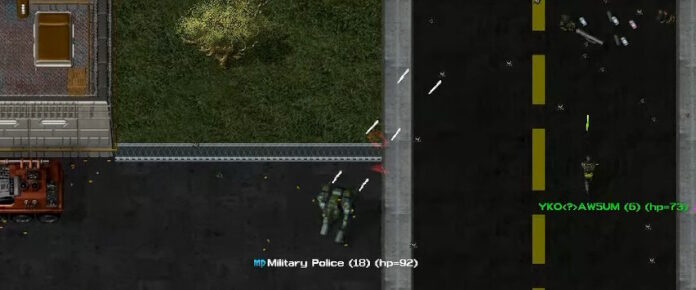
Yesterday, Crowfall studio ArtCraft announced it was spinning off a brand-new company dubbed ArtCraft Technologies that would basically turn Crowfall’s engine into a marketable product for other studios, “providing game developers with turnkey technology solutions for creating large-scale Massively Multiplayer Online games.” We had opportunity to chat with ArtCraft Creative Director J Todd Coleman about the move and what it means for the studio and genre. Read on!
Massively OP: So to start, we’re curious about the “why” behind the new studio. Is ArtCraft thinking of this venture as an extra revenue stream for the company? Or is it trying to encourage more MMORPGs – or maybe both?
J. Todd Coleman: This wasn’t originally part of our plan. In the last 12 months, we’ve had a few different studios contact us to see if we would consider licensing our technology. The more we looked into it, the more it made sense. The additional revenue stream is great, obviously, but that has to be balanced against the potential distraction. We wouldn’t have done this if we didn’t see it as a great strategic move for the company, and a chance to leverage what we’ve built into something much bigger.
Does planning for the new spinoff company have anything at all to do with the recent delay of the soft launch to next year, or is it totally a separate project, team, and so forth?
No, the delays are caused by design iteration. Crowfall is a unique (and risky) design vision, and risk, by definition, means uncertainty. When you try a new idea, it either works or it doesn’t. When it doesn’t, you have a choice: you either decide to live with it and move on, or you rework it. “Reworking it” means a delay.
The new division, which we are calling ArtCraft Technologies, will be separately funded and eventually managed independently. We were fortunate enough to attract Josef Hall (co-creator of Shadowbane, Wizard101 and Pirate101) to run it, and he is recruiting a team of 6 to 8 senior engineers to bolster (and “engine-ify”) the Crowfall technology.
I’d love to say that these additional resources will increase in the velocity of Crowfall’s development (that would be fantastic) but I don’t know if that will happen. But they will certainly make the technology more stable, maintainable and optimized — which will be hugely beneficial to our launch.

Are we correct in thinking that Crowfall is basically running on the same tech you’ll be leasing out to other companies? Some of our commenters had criticized Crowfall’s testing environment, making us wonder whether it’s ready for other games.
That’s fair on both counts, I think.
Yes, the technology is currently being used to power Crowfall. It will eventually become a stand-alone, packaged tech stack that we are calling the Artisan Engine. It differs from a rendering engine (like Unity or Unreal) in that it provide a full RPG layer; all of the connective tissue that makes an MMORPG work: avatars, races, classes, chat, terrain, movement, powers, items, contains, combat, powers, etc.
And since Crowfall is still in in pre-alpha, it’s absolutely fair to say that it “isn’t an engine yet.” Even in it’s current state, however, we can shave upwards of 2-3 calendar years — and millions of dollars — off of a traditional 5 to 7 year MMO development cycle. That’s significant.
Also, I think it’s worth pointing out that all of the “MMO Engine” companies, both now and historically, have lacked a reference game — and by that I mean a launched MMO, not a demo environment. That’s exactly where we will be until Crowfall ships.
When we read the PR [Tuesday], comparisons to SpatialOS immediately leaped out at us, but we’re aware that companies like Soulbound [Chronicles of Elyria] have run into problems getting it to properly interface and scale with their tech. Of course, SpatialOS looks as if it’s aiming for a much broader scale than Artisan. What do you folks think should nudge fledgling developers to Artisan over something like SpatialOS?
SpatialOS is solving a very different problem. They are laser-focused on the challenge of simulating a massive number of players in a seamless universe. That’s a very difficult problem, and from what I can tell, they have a very cool solution.
We’re not doing that. Our pitch is much more simple: we give you an “MMO in a box”, a framework that handles all of the stuff that you need, but don’t want to build. In about a week, you can have avatars with unique races and classes and powers, running around procedurally-generated mountains and canyons and forests and valleys, fighting monsters and players with action combat, harvesting resources and crafting items, dynamically building cities and destroying castles. We have seasons, a day/night cycle, weather events… all of that works, and it’s all driven by design tools.
Are there applications for Artisan outside of MMORPGs?
Probably! I’d wager 70% of what we’ve built would be usable for AAA games that fall outside the “traditional” MMO genre… and that line has blurred, frankly, as more and more titles embrace persistence and online social mechanics.
That said, we’re going to take measured steps. With Crowfall moving towards launch, and our first external customer already signed, I suspect that Josef and his team will probably have their plates full for the near future.
Might ArtCraft be considering building a second game of its own using Artisan now or in the future?
Absolutely. We never intended to be a one-game company. This was another great side-effect of “engine-ifying” our technology; we’ll see the benefit for our next game, and beyond… but first, of course, we need to make Crowfall successful.
We’d like to thank Coleman so very much for speaking with us. G’luck, ArtCraft!















